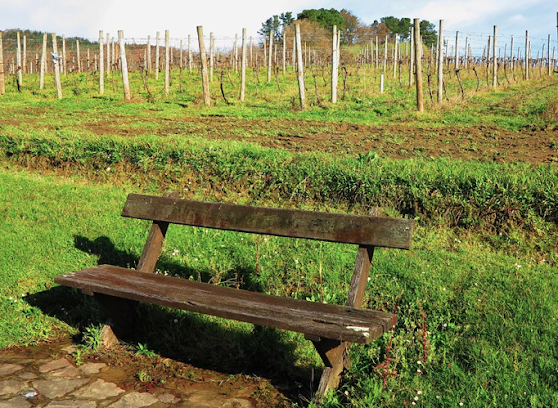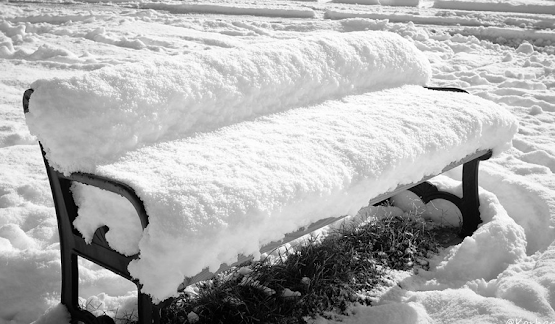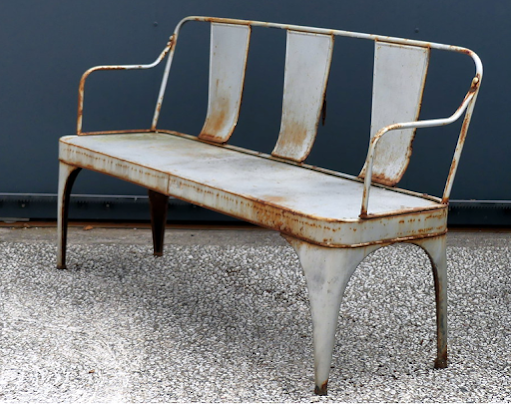Friday, January 29, 2021
Something's not right here
 |
| Location, location, location |
 |
| Count the hands Unintended silhouettes? Dog boulder Human face on elephant's ear UFO cloud Blue stop sign? Caterpillar birds... Leaf-covered creek (not walking path!) Bar of soap fresh from the microwave... Three of these are actually just shadows Bear keychain changed to a frog |
Thursday, January 28, 2021
Monday, January 18, 2021
Blue: nature's rarest color
"Blue is a rare color—natural blue, that is. From morpho butterflies in the rain forest to the blue jay flitting past your window, vanishingly few living things are blue—and most that appear so are doing sleight of hand with physics or complex chemistry. Flowers modify the red pigment anthocyanin to achieve their blue hue. Even the blue sky above us is a trick of the light.
Yet this hard-to-spot accent color in our surroundings looms large in our affections. Science journalist Kai Kupferschmidt has been fascinated by blue since childhood. His quest to find and understand his favorite color and its hallowed place in our culture takes him to a gene-splicing laboratory in Japan, a volcanic lake in Oregon, and to Brandenburg, Germany—home of the last Spix’s macaws. From deep underground where blue minerals grow into crystals to miles away in space where satellites gaze down at our 'blue marble' planet, wherever we do find blue, it always has a story to tell."
Sunday, January 17, 2021
Big Jake and Thumbelina
Big Jake is a red flaxen Belgian gelding noted for his extreme height. He stands at 20.3 hands (210.2 cm (6 ft 10-3/4 in)) tall and weighs 2,600 pounds (1,133 kg). According to Guinness World Records, Big Jake broke the record for the world's tallest living horse when he was measured in 2010, and he still held that record as of 2018.
Big Jake was born in 2001 in Nebraska where he was purchased by his owner, Jerry Gilbert. At birth, he weighed roughly 240 pounds. As of 2013, Big Jake was retired and lived at Smokey Hollow Farm, near Poynette, Wisconsin.

#FB00229
African cucumber
The African cucumber, horned melon or kiwanis — is perhaps one of the world's most beautiful fruits. It is bright orange on the outside with a green and yellow interior, which forms a geometric design with its seeds. Its flavor has been compared to cucumbers and zucchinis, which the fruit resembles, but also bananas and lemons. While native to Africa, horned melons are now grown in California, Chile, Australia, and New Zealand.
#FB00227
French soil

On a broad, general scale, virtually the whole of France can be classified in the zone of brown forest soils, or brown earths. These soils, which develop under deciduous forest cover in temperate climatic conditions, are of excellent agricultural value. Some climate-related variation can be detected within the French brown earth group; in the high-rainfall and somewhat cool conditions of northwestern France, carbonates and other minerals tend to be leached downward, producing a degraded brown earth soil of higher acidity and lesser fertility; locally this may approach the nature of the north European podzol. The brown earth zone gives way southward to the zone of Mediterranean soils, which in France cover only a limited area. They are developed from decalcified clays with a coarse sand admixture and are typically red in color because of the upward migration of iron oxides during the warm, dry summers. These soils can be quite fertile.
Over large areas of France, soils have developed not directly from the disintegrated bedrock but from the waste sheets created by periglacial action. These may provide a particularly favorable soil material; most notable is the windblown limon that mantles the Paleogene and Neogene limestone plateaus of the central Paris Basin and the chalk beds to the northwest, the basis of the finest arable soils of France. The quality of the soils depends heavily upon the origin of their waste sheets; sand spreads derived from the granites of the Hercynian massifs, for example, provide only poor soils. The bedrock, however, is not without influence. Soils developed over clays are likely to be heavy and wet, although not necessarily infertile, as in the Jurassic clay and chalk vales of the eastern Paris Basin. Limestone and chalk enrich soils with lime, which is generally favorable, but there is a marked north-south contrast. The limestone areas of southern France tend to be swept almost bare of soil by erosion; the soil then collects in valleys and hollows. The soils of the higher mountains are naturally stony and unfavorable.
Finally, human action is an extremely important factor in soil quality. As soon as the original forest was cleared, some modification of the soil was inevitable. Generally, farmers through the ages have maintained or improved soil quality by draining and manuring; especially noteworthy were the activities of Flemish peasants who virtually created their soil out of a marshy wilderness. Not all human intervention has been as successful, however. For example, the degradation of brown earths under heath in western France is not a natural feature but the product of human clearance and grazing practices. Large-scale arable cultivation with no use of animal manure is leading in places to soil degradation and soil erosion.
Source: https://www.britannica.com/place/France/Soils
Don't ask me why I found the topic of "brown earths" of interest.
#FB00226
Friday, January 15, 2021
INSTANT Meals Ancient Chinese Merchants Ate on the Silk Road
https://www.youtube.com/watch?v=sY_SH2h0KI Having a problem posting this now. Error.
-
Founding GoCreator Members: (8) Teresa Burritt ( Frog Applause ) GoCreator founder, organizer, member recruitment https://www.gocomics.c...
-
I've featured this Serbian dog groomer and his (wife) assistant before. They are amazing people doing amazing work for dogs in need. #...























































